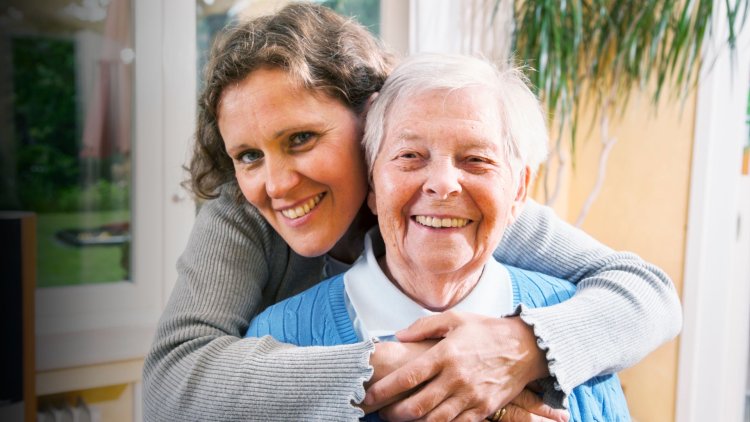How Hobbies and Purposeful Activities Enhance an Elder’s Mental Health
Discover how hobbies and purposeful activities boost mental health for seniors. Learn how elder care and home care services support well-being and happiness.

Engaging in hobbies and purposeful activities is more than just a way to pass time for seniors; it plays a vital role in boosting mental health and overall well-being. With age, mental health becomes a key area of focus in elder care, as seniors often face challenges like loneliness, anxiety, or memory decline. Participating in meaningful activities not only combats these issues but also ignites a sense of joy, purpose, and fulfillment.
With the support of elder home care services and elderly care professionals, seniors can explore hobbies that enrich their lives while improving their mental health. Here’s how these activities make such a profound impact and how old age care services help facilitate them.
The Psychological Benefits of Hobbies for Seniors
Hobbies and other purposeful activities contribute significantly to improving seniors' mental well-being. Here are some of the key advantages:
1. Stress Reduction
Engaging in enjoyable activities can significantly lower stress levels. Whether it’s gardening, knitting, painting, or listening to music, these hobbies create moments of relaxation and mindfulness that help seniors release tension. For instance, a study shows that crafting and creative pursuits lower cortisol levels—the hormone associated with stress.
By focusing on something they truly enjoy, seniors can redirect their thoughts away from worry and toward positivity. Elder home care services often encourage such practices by introducing seniors to calming hobbies that suit their preferences.
2. Improved Cognitive Function
Pursuing mentally stimulating hobbies like puzzles, chess, reading, or learning a new skill helps maintain cognitive sharpness. These activities exercise the brain, improve memory, and delay the cognitive declines associated with aging. For example, learning a musical instrument can strengthen neural pathways and enhance concentration.
Elderly care services can organize activities like memory games or provide resources for lifelong learning to keep seniors' minds active.
3. Fostering Social Connections
Isolation is a major concern in old age care, and hobbies can act as a bridge to social engagement. Activities such as joining a book club, participating in group crafts, or taking part in community events provide opportunities to connect with others, reducing feelings of loneliness.
Seniors who build relationships with others through shared interests often experience an emotional uplift, as social bonds are essential for mental well-being. Elder home care services often organize group activities like board game nights or outdoor walks to help seniors socialize in a safe, guided environment.
4. Sense of Purpose and Fulfillment
Having something to look forward to each day instills a sense of purpose, which is crucial to a senior's mental health. Purposeful activities such as volunteering, helping in the kitchen, or mentoring younger generations give seniors a feeling of being needed and valued.
Feeling capable and productive often reduces anxiety and depression, giving seniors the motivation to engage more fully with life. Caregivers in elderly care services can play a pivotal role by facilitating these opportunities and encouraging their participation.
Examples of Purposeful Activities and Their Impact
Not all hobbies suit every individual, but here are some excellent options tailored for older adults and their potential mental health benefits:
1. Gardening
Gardening is therapeutic, combining physical activity with mindfulness. Caring for plants, tending to flowers, or growing vegetables provides a sense of accomplishment while reducing stress. For seniors with mobility issues, elder home care providers can assist with small-scale gardening such as indoor planting.
2. Art and Craft
Creative hobbies like painting, knitting, or woodworking allow seniors to express themselves while stimulating their imagination. These activities not only promote relaxation but also boost self-esteem by transforming ideas into tangible creations.
3. Exercise and Movement
Physical activities such as yoga, light aerobics, or dance classes contribute to mental health by releasing endorphins—natural mood-boosters. Exercise also improves sleep, which directly impacts emotional well-being. Elderly care services often guide seniors in simple yet effective routines tailored to their mobility levels.
4. Music and Dance
Listening to or creating music can tap into deep emotional connections while improving mood. Dancing, on the other hand, offers dual benefits by enhancing both mental and physical health. Seniors who participate in dance or music therapy often report heightened energy levels and happiness.
5. Puzzles and Games
Playing puzzles or board games like crosswords, Sudoku, or cards keeps the mind sharp and entertained. When done in groups, it also promotes social interaction, further enriching mental wellness.
6. Volunteering
For seniors capable of giving back, volunteering opportunities such as fundraising, teaching small workshops, or mentoring younger people yield a strong sense of purpose. Volunteering promotes higher life satisfaction and feelings of accomplishment.
The Role of Elder Home Care Services in Facilitating Activities
Elder home care services provide the necessary support and resources to encourage seniors to engage in purpose-driven activities. Here's how these services ensure hobbies become a part of a senior’s care plan:
- Personalized Recommendations: Caregivers assess a senior's interests, physical abilities, and mental health needs to recommend suitable activities.
- Regular Motivation: Sometimes, seniors need encouragement to step out of their comfort zone and try new hobbies. Professional caregivers provide this emotional support.
- Logistical Support: Be it transportation to a community class, fetching materials for a hobby, or ensuring safety during the activity, caregivers take care of the logistics to make these experiences enriching and hassle-free.
- Group Events and Classes: Many elderly care services organize events such as craft workshops or social clubs, creating a positive and interactive environment for seniors.
Final Thoughts
Hobbies and purposeful activities hold the potential to transform a senior's mental health by reducing stress, sharpening the mind, fostering connections, and instilling meaning. With the involvement of elder home care services, these activities become even more accessible and comfortable for older adults, creating an environment that supports mental well-being and happiness.
Whether it’s solving puzzles, painting, or taking a stroll outdoors, any activity that engages the mind and body can significantly improve seniors’ quality of life. If you're exploring options to enhance your loved one's mental health, consider working with old age care services to introduce them to hobbies and programs tailored to their needs. Everyone deserves a fulfilling, joy-filled life, and purposeful activities pave the way for just that.
Read More Blogs:-






















